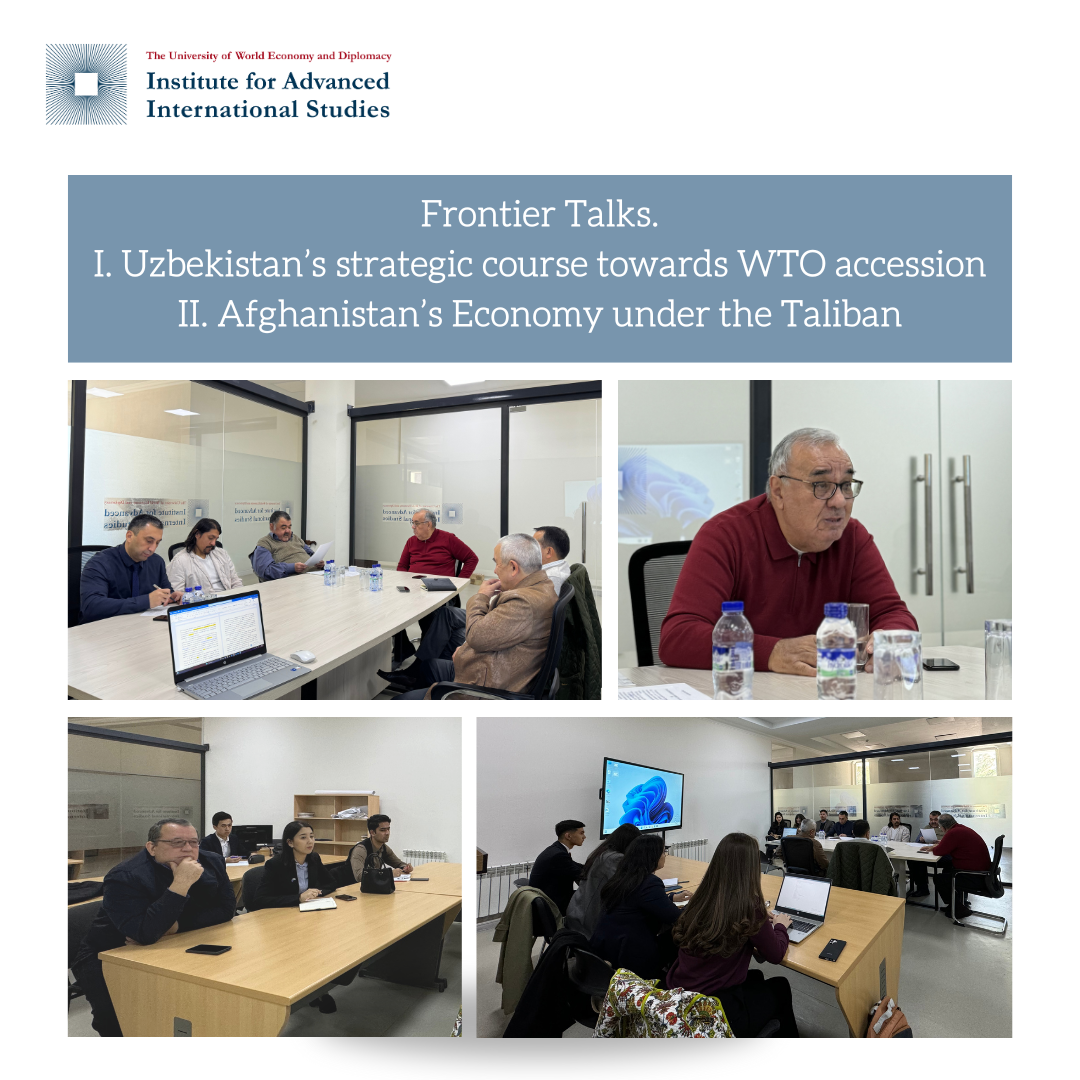
The Institute for Advanced International Studies (IAIS) hosted the second open seminar of the #FrontierTalks series, featuring two distinguished experts on pressing regional issues. The event drew active participation from IAIS and Diplomatic Academy leadership, staff, and students from the University of World Economy and Diplomacy (UWED), signaling its significance in fostering a deeper understanding of pivotal international developments.
The first presentation, led by Dr Azamat Seitov, Head of the Laboratory for Anthropology and Conflict Studies, examined Uzbekistan’s Strategic Course towards WTO Accession. Dr Seitov outlined the comprehensive strategy the country is pursuing to integrate into the global trading system, which involves substantial legal, economic, and structural reforms. He stressed that Uzbekistan’s accession to the World Trade Organization is a key priority in its foreign economic policy, intended to stimulate trade diversification, attract foreign investment, and enhance competitiveness. The talk also addressed the potential challenges, such as balancing liberalisation efforts with protecting domestic industries, and the steps Uzbekistan is taking to navigate these complexities. Dr Seitov emphasised that the accession process aligns with the broader objective of modernising the economy, strengthening the rule of law, and improving living standards.
In a detailed analysis, Dr Seitov discussed the legal and procedural measures being undertaken to meet WTO requirements, including harmonisation of national legislation with international standards and negotiations on tariff schedules. He underscored the importance of engaging various stakeholders in the accession process, highlighting that the government is actively seeking input from businesses, civil society, and international partners to ensure a balanced approach to reform. The discussion also touched on the expected impact of WTO membership on Uzbekistan’s economic policy and trade relations, with a focus on potential gains in market access and the diversification of export markets.
The second presentation by Rustam Makhmudov, a Senior Research Fellow at the Laboratory for Anthropology and Conflict Studies, provided an in-depth assessment of Afghanistan’s Economy under the Taliban and its Development in the Context of International Isolation. Mr. Makhmudov explored the economic landscape of Afghanistan since the Taliban's return to power, examining the effects of international sanctions, the suspension of foreign aid, and the withdrawal of international organisations. He highlighted that these factors have precipitated a severe economic contraction, exacerbating poverty and humanitarian challenges in the country.
The expert further explained that despite the difficult circumstances, the Taliban have sought to stabilise the economy through alternative means, such as increased taxation and customs revenues. However, these efforts are limited in scope and insufficient to compensate for the loss of external financial support. The seminar also addressed the prospects for regional economic cooperation and the role of neighbouring countries in mitigating Afghanistan’s economic difficulties, particularly through trade and infrastructure projects. Rustam Makhmudov argued that while economic engagement with Afghanistan remains controversial, neighbouring states have a vested interest in preventing further destabilisation and humanitarian crises.
The presentations prompted a lively discussion among participants, who raised questions about the future trajectories of Uzbekistan’s economic integration and Afghanistan’s development under continued international isolation. The event underscored the significance of understanding the geopolitical and economic dynamics in the region, and the need for informed dialogue on these issues.
The Frontier Talks series will continue, with future seminars planned to engage leading experts in discussions on critical regional and international matters.